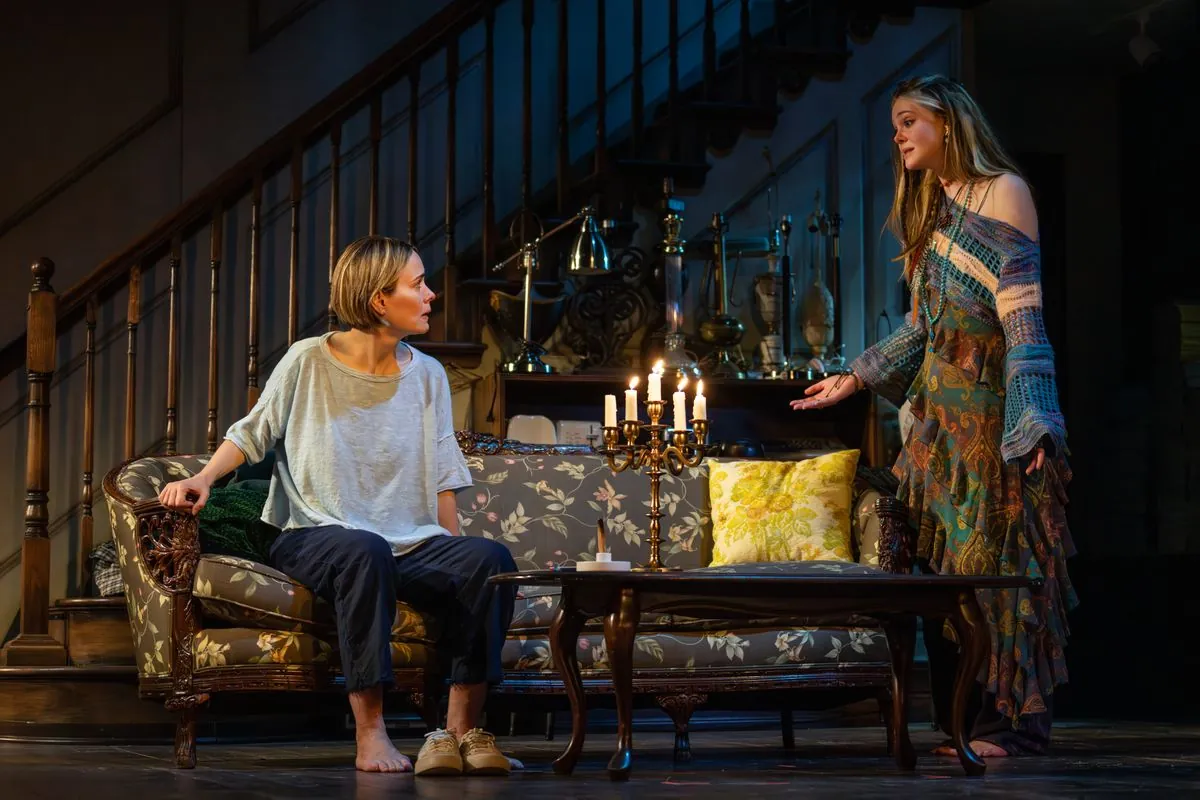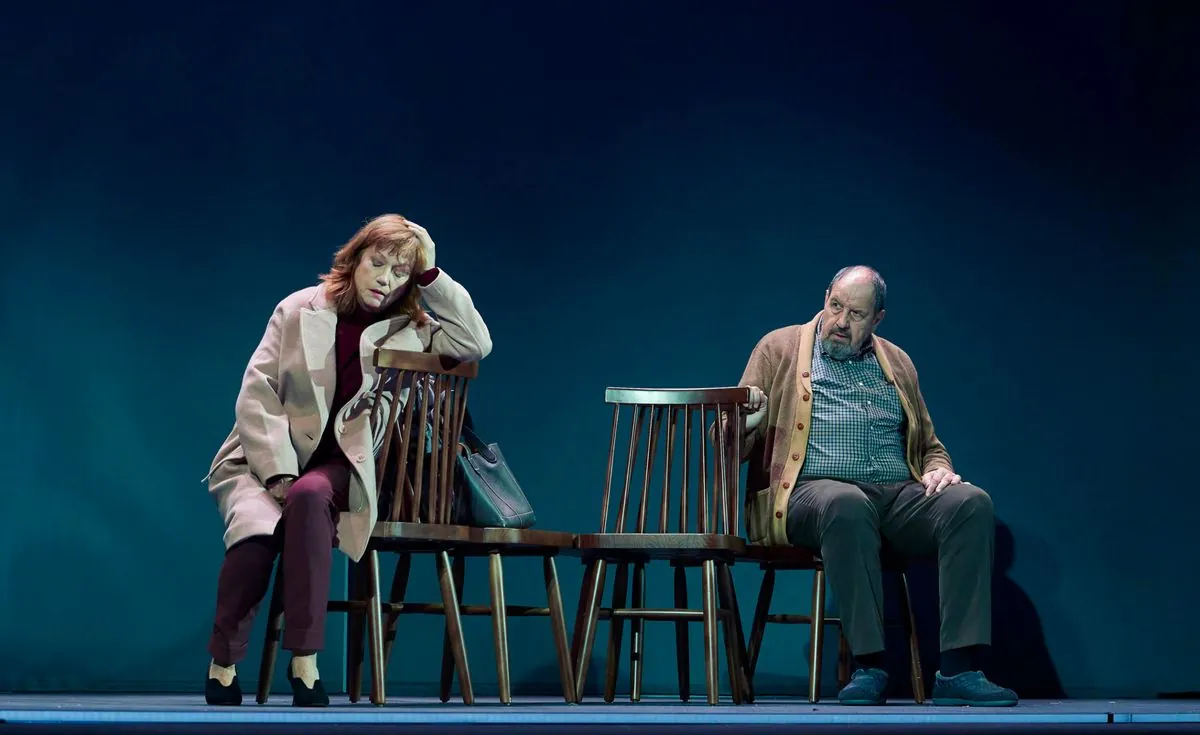Cloning Drama "A Number" Explores Parental Regrets and Identity Crisis
Caryl Churchill's play "A Number" tackles the ethical dilemmas of cloning and the complexities of parenthood. A father's decision to clone his son leads to profound questions about identity and the consequences of past actions.

In a thought-provoking exploration of parental regret and identity, Caryl Churchill's play "A Number" challenges audiences to confront the ethical implications of cloning and the complexities of human relationships. The production, currently staged by Edge of the Universe Theater in Arlington, Virginia, delves into the consequences of a father's desperate attempt at a parental do-over.
The plot revolves around a 60-year-old widower who, dissatisfied with his initial attempt at fatherhood, makes the extraordinary decision to clone his son. This choice, made 35 years prior to the play's events, sets the stage for a gripping narrative that unfolds as the adult clone discovers his unusual origin.
David Bryan Jackson portrays Salter, the father grappling with the repercussions of his past actions. His son, Bernard, is played by Max Jackson, adding an intriguing layer of authenticity to the production as the two are real-life father and son. Their performances navigate Churchill's fragmented dialogue, which mirrors the fractured nature of the characters' understanding and relationships.
"I could have managed better"
This poignant admission encapsulates the central theme of parental regret that drives the narrative. The play doesn't shy away from darker elements, hinting at issues of substance abuse and neglect that may have motivated Salter's extreme decision.
Churchill's work, which premiered in 2002, was timely in its exploration of cloning ethics. It came just five years after the announcement of Dolly the sheep, the first cloned mammal, which sparked global debates on the implications of cloning technology. The play goes beyond the scientific aspect, delving into philosophical questions about identity and the nature-nurture debate.
The production, directed by Stephen Jarrett, makes effective use of a minimalist set designed by Simone Schneeberg. The stark, black-box environment serves to heighten the sense of isolation and introspection that permeates the story. Hailey LaRoe's lighting design and Lauren K. Lambie's costumes further contribute to the play's intense atmosphere.

As the narrative unfolds, it raises provocative questions about the nature of individuality and the factors that shape a person's identity. The clone's struggle to understand his place in the world and his relationship to his "original" self forms the emotional core of the play. This exploration of identity resonates with contemporary discussions in psychology and genetics, including the growing field of epigenetics, which examines how environment and behavior can influence gene expression.
Churchill, known for her bold approach to sociopolitical themes in works like "Mad Forest" and "Far Away," brings her characteristic intensity to "A Number." The play's brevity – running just about an hour – belies its depth, packing complex ethical dilemmas and emotional turmoil into its concise runtime.
The production in Arlington, running until September 1, 2024, offers audiences a chance to engage with these weighty themes. As the characters grapple with the consequences of their choices, viewers are invited to reflect on their own understanding of identity, parenthood, and the ethical boundaries of scientific advancement.
"A Number" ultimately suggests that while we may strive to leave our past behind and start anew, some burdens are inescapable. This poignant reminder of the lasting impact of our choices makes Churchill's play a powerful and relevant piece of theatre, even two decades after its initial premiere.


































